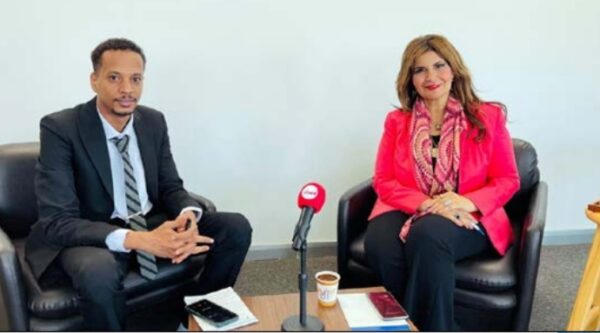Popular Initiative to Revitalize Integration between Sudan and Egypt

Interview: Marwan Al-Ryah
Dr. Hanan Yousuf, Head of the Nile Popular Initiative, revealed that the purpose of the initiative is to activate integration between the people of the Nile Valley as a citizens’ initiative.
Dr. Hanan, who holds the position of Dean of the Faculty of Media at the Arab Academy for Science and Technology, said in an interview with (Sudanese Echoes), that the initiative was founded in 2008. She added that the Sudanese who came to Egypt after the war are guests of Egypt and are welcomed by the Egyptian government and the people.
Hanan stressed that the unity of the Nile Valley is basically one of the goals of the political leadership in the two countries, explaining that communication between the two countries is not a new thing, but rather an ancient liaise that dated back to time immemorial, and it is (one vein running in one body with no separation).
She pointed out that the initiative aims to enhance human relations between the two countries, which is a stride that increases the scope of integration between them. She described the initiative as very important and must be reinvigorated and not limited to the areas of official action only, but rather it has to be done through implementing the programs provided, expanding the horizon of cooperation, and enhancing human relations between the two peoples so that the renaissance is comprehensive for both countries.
She explained that the initiative aims to deepen the culture of each people in the other through this continuous positive interaction between the two parties, and to enhance the Egyptian-Sudanese fraternal relationship by implementing the programs provided for the purpose of revitalizing the common areas between the two countries, in addition to working to enhance the appropriate environment for the success of the paths of cooperation, sustainable development, and joint renaissance between the two countries.
Hanan said that the initiative targets a group of parallel movements in the two countries with partners from various sectors, most notably political parties and groups, universities, educational and academic institutions, press institutions, women, youth, art, and culture
